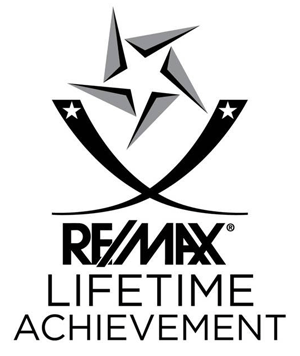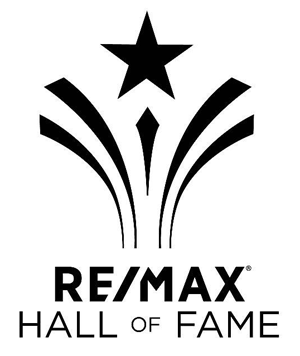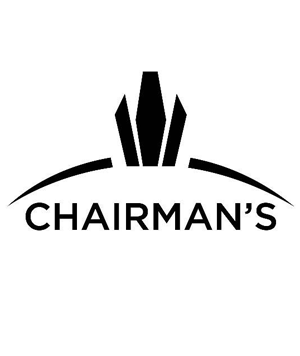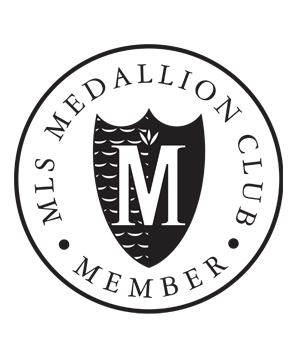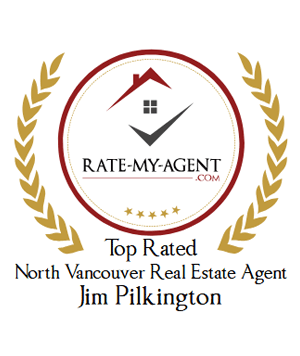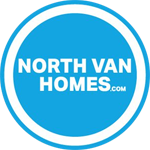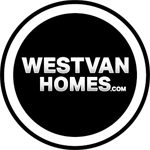What’s the Difference Between Condo, Townhouse, and Detached—Can RE/MAX Crest Realty Advise?
Choosing between a condo, townhouse, or detached home shapes your lifestyle for years to come. Each property type offers distinct benefits that match different budgets, space needs, and maintenance preferences. The key is understanding what each option brings to the table.
As a lifelong North Vancouver resident and a RE/MAX Crest Realty Agent who has helped hundreds of families navigate this decision, I’ve seen how the right choice can transform your quality of life. Let me break down everything you need to know about these three property types to help you make the best decision for your situation.
Understanding the Three Main Property Types
Before diving into the pros and cons, let’s clarify what makes each property type unique.
Condominiums are individual units within larger buildings or complexes. You own the interior space while sharing common areas like hallways, elevators, and amenities with other residents. A strata corporation manages the building and collects monthly fees from owners.
Townhouses are multi-level homes that share walls with neighbouring units. You typically own the interior, exterior walls, and often a small private outdoor space. Most townhouse developments have strata fees for maintaining shared areas.
Detached homes are standalone houses on their own lots. You own everything—the house, the land, and bear full responsibility for all maintenance and repairs.
Condominiums: Urban Living Made Simple
Condos offer the ultimate in low-maintenance living, making them perfect for busy professionals, first-time buyers, and those looking to downsize.
The Condo Advantage
Lower entry costs make condos the most affordable path to homeownership. In North Vancouver, condos typically cost significantly less than townhouses or detached homes, helping you build equity sooner.
Minimal maintenance responsibilities mean you can focus on enjoying life rather than weekend yard work. The strata corporation handles exterior repairs, landscaping, and building upkeep.
Prime locations put you closer to transit, shopping, and entertainment. Many North Vancouver condos offer walking distance to the SeaBus, Lonsdale Quay, and vibrant downtown areas.
Shared amenities like fitness centres, rooftop decks, and concierge services provide luxury features you might not afford in a detached home.
Condo Considerations
Monthly strata fees add to your housing costs and can increase over time. These fees typically range from $300-800+ monthly, depending on building age and amenities.
Limited privacy means sharing walls and dealing with potential noise from neighbours, especially in older buildings with poor soundproofing.
Restricted storage space requires careful consideration of your belongings. Most condos offer limited closet space and no basement or garage storage.
Strata bylaws may restrict renovations, pet ownership, or rental opportunities. Always review these rules before buying.
Townhouses: The Perfect Middle Ground
Townhouses bridge the gap between condo convenience and detached home space, offering compromise solutions that work for many buyers.
Townhouse Benefits
More space than condos typically includes multiple levels, private outdoor areas, and often attached garages. Perfect for growing families needing extra bedrooms or home offices.
Shared maintenance responsibilities mean you handle your unit’s immediate surroundings while the strata corporation manages major building maintenance.
Better privacy with fewer shared walls and often private entrances. Many townhouses feel more like detached homes than condos.
Family-friendly layouts with multiple bedrooms, bathrooms, and living areas make townhouses ideal for families with children.
Townhouse Trade-offs
Higher costs than condos but still more affordable than detached homes. North Vancouver townhouses typically range from $800,000 to $1.5 million, depending on location and size.
Ongoing strata fees usually lower than condo fees but still add monthly expenses. Expect $200-500 monthly for common area maintenance.
Limited outdoor space compared to detached homes. While you’ll have a patio or small yard, it’s typically much smaller than a detached home’s lot.
Some noise transfer from neighbouring units, though usually less than condos.
Detached Homes: Maximum Freedom and Space
Detached homes offer ultimate privacy, space, and property control. They’re ideal for buyers wanting complete autonomy and don’t mind added responsibilities.
Detached Home Advantages
Complete privacy with no shared walls, floors, or ceilings. Your home truly becomes your castle without neighbour noise concerns.
Maximum space includes larger lot sizes, multiple bedrooms, full basements, and often multi-car garages. Perfect for large families or home-based businesses.
Full renovation control over landscaping and property modifications. Want to add a deck, change exterior colours, or install a hot tub? No strata approval needed.
Strong investment potential as detached homes typically appreciate faster than condos or townhouses. They’re also easier to rent for additional income.
Expansive outdoor space for gardening, entertaining, children’s play areas, or pet ownership. Many North Vancouver detached homes offer stunning mountain or water views.
Detached Home Responsibilities
Higher purchase prices make detached homes the most expensive option. North Vancouver detached homes often start at $1.5 million and can exceed $5 million in premium neighbourhoods.
Complete maintenance responsibility means handling everything from lawn care to roof repairs. Budget for ongoing maintenance costs and time commitments.
Higher property taxes due to increased assessed values. Detached homes typically carry the highest tax bills.
Increased utility costs from heating, cooling, and maintaining larger spaces.
Financial Planning Beyond the Purchase Price
Understanding true ownership costs goes far beyond the mortgage payment.
Upfront Investment Requirements
Down payment amounts vary significantly by property type:
- Condos: $50,000-100,000 typical down payment
- Townhouses: $80,000-150,000 typical down payment
- Detached homes: $150,000-500,000+ typical down payment
Property transfer tax calculations based on purchase price mean higher-priced detached homes incur larger tax bills.
Professional inspections are crucial for all property types but especially important for older buildings and detached homes where you assume responsibility for major systems.
Monthly Carrying Costs
Calculate total monthly expenses, not just mortgage payments:
Condos: Mortgage + strata fees + property taxes + utilities + insurance
Townhouses: Mortgage + strata fees + property taxes + utilities + insurance
Detached homes: Mortgage + property taxes + utilities + insurance + maintenance fund
Strata fees for condos and townhouses cover building maintenance, landscaping, and shared utilities. These fees increase annually and may include special assessments for major repairs.
Property taxes reflect assessed values. Detached homes typically have higher assessments and therefore higher annual tax bills.
Lifestyle Matching: Choosing Based on Life Stage
Your property choice should align with current needs and future plans.
Life Stage Considerations
First-time buyers often benefit from condos due to lower entry costs and minimal maintenance requirements. They’re ideal for learning homeownership responsibilities gradually.
Growing families frequently choose townhouses or detached homes for additional space, private yards, and proximity to family-friendly neighbourhoods.
Empty nesters often downsize from detached homes to condos or townhouses, reducing maintenance while maintaining homeownership benefits.
Work and Commute Patterns
Urban professionals commuting to downtown Vancouver often prefer condos near transit hubs like Lonsdale Quay or SeaBus terminals.
Remote workers may prioritize detached homes with dedicated office spaces and quiet neighbourhoods.Families with school-age children often focus on detached homes or townhouses in neighbourhoods with top-rated schools.

As an award winning realtor who has lived my entire life on the North Shore, let me showcase your home and all the beauty this area has to offer. Get in touch now.
North Vancouver Neighbourhood Dynamics
Different North Vancouver areas favour different property types, each offering unique lifestyle benefits.
Lower Lonsdale and Central Lonsdale feature primarily condos and townhouses, perfect for urban living with easy downtown access via SeaBus.
Lynn Valley and Deep Cove offer more detached homes and townhouses, ideal for families seeking suburban charm with natural amenities like hiking trails and parks.
Edgemont Village and Upper Lonsdale provide mixed property types, from luxury condos to prestigious detached homes, each with distinct community characteristics.
Each neighbourhood influences property values, lifestyle options, and long-term appreciation potential based on proximity to schools, transit, and recreational facilities.
Decision-Making Framework: Key Questions to Consider
Before making offers, honestly evaluate these critical factors:
- What’s your realistic budget? Include all carrying costs, not just purchase prices.
- How long do you plan to stay? Short-term buyers might prefer condos; long-term owners often choose detached homes.
- How much maintenance can you handle? Be honest about time, skills, and interest in property upkeep.
- What are your space requirements? Consider current and future needs for family, work, and storage.
- How important is location access? Proximity to work, schools, and amenities should influence property type decisions.
Market Insights from North Vancouver Experience
Having worked in North Vancouver real estate for over 25 years, I’ve observed consistent patterns that can guide your decision-making.
Condos typically attract the largest buyer pool due to affordability, making them easier to sell when market conditions change. They’re also popular rental investments due to strong demand from young professionals.
Townhouses offer the best of both worlds—more space than condos with less maintenance than detached homes. They appeal to families transitioning from condos who aren’t ready for full detached home responsibilities.
Detached homes historically show the strongest appreciation in North Vancouver, especially properties with mountain or water views. They’re also the most flexible for multigenerational families or home-based businesses.
Investment Potential Across Property Types
Each property type offers different investment characteristics worth considering.
Condos provide steady rental income potential and lower maintenance costs, making them attractive for investment portfolios. However, they typically appreciate slower than detached homes.
Townhouses balance rental income potential with moderate appreciation, appealing to investors seeking middle-ground strategies.
Detached homes offer the strongest long-term appreciation potential, especially in desirable North Vancouver neighbourhoods. They’re also easiest to modify for changing family needs or rental suites.
Strata Living: What You Need to Know
Both condos and most townhouses operate under strata corporations, which significantly impact your ownership experience.
Understanding Strata Documents
Bylaws govern everything from pet restrictions to renovation approvals. Review these carefully before purchasing.
Financial statements reveal the strata corporation’s financial health, including reserve fund levels for future repairs.
Depreciation reports outline upcoming maintenance needs and associated costs, helping you anticipate future special assessments.
Strata Fee Breakdown
Monthly strata fees typically cover:
- Building exterior maintenance and repairs
- Landscaping and snow removal
- Insurance for common property
- Professional management fees
- Contributions to contingency reserve funds
- Some utilities (varies by building)
Ready to Find Your Perfect North Vancouver Home?
Choosing between a condo, townhouse, or detached home requires balancing lifestyle preferences, financial capabilities, and long-term goals. Each option offers distinct advantages that can enhance your quality of life when chosen correctly.
As someone who’s lived in North Vancouver my entire life and helped countless families navigate these decisions, I understand the unique characteristics of each neighbourhood and property type. My approach focuses on making your buying experience as stress-free and financially rewarding as possible.
I take time to understand your specific needs, budget, and future plans, then use my deep local knowledge to guide you toward the best opportunities. Whether you’re a first-time buyer, growing family, or looking to downsize, I can help you explore properties that truly match your lifestyle and investment goals.
Ready to take the next step? I’d love to sit down and discuss your homebuying goals. Contact me at (604) 785-5188 or email JimPilkington@shaw.ca to schedule a consultation. Together, we can find the perfect property type and location for your next chapter in beautiful North Vancouver.
Frequently Asked Questions
Which property type appreciates fastest in North Vancouver?
Historically, detached homes show the strongest appreciation, followed by townhouses, then condos. However, location often matters more than property type, and past performance doesn’t guarantee future results.
Are strata fees tax deductible?
Strata fees for your primary residence aren’t tax deductible. However, if you rent out your property, strata fees become deductible expenses against rental income.
Can I rent out my condo or townhouse?
This depends on strata bylaws. Some buildings restrict rentals entirely, while others limit the percentage of rental units. Always review strata documents before buying if rental income is part of your strategy.
What’s typically included in strata fees?
Strata fees usually cover building maintenance, landscaping, snow removal, insurance for common areas, management fees, and contributions to reserve funds. Some buildings include utilities like heat, hot water, or cable.
How much should I budget for detached home maintenance?
Budget 1-3% of your home’s value annually for maintenance and repairs. For a $1.5 million North Vancouver home, that’s $15,000-45,000 yearly, though costs vary significantly based on home age and condition.
Are there age restrictions for condos or townhouses?
Some developments are designated as 55+ or adult-oriented, restricting children or limiting resident ages. These restrictions are outlined in strata bylaws and building covenants.
Which property type is easiest to sell?
This varies by market conditions and location. Condos typically have the largest buyer pool due to lower prices, while well-located detached homes often sell fastest despite higher prices. Townhouses fall between these extremes.
What’s the difference between strata fees and property taxes?
Strata fees are monthly payments to your strata corporation covering common property maintenance and administration. Property taxes are annual payments to municipalities funding public services like schools, roads, and parks. All homeowners pay property taxes regardless of property type.
Can I renovate my townhouse or condo?
You can renovate your unit’s interior, but changes affecting common property like moving walls or altering plumbing require strata council approval. Always review bylaws before planning renovations.
How do I find out about a building’s strata fees?
Strata fees appear on MLS listings. When making offers, your real estate agent requests strata documents including budgets and financial statements, providing detailed fee breakdowns and corporation financial health information.

